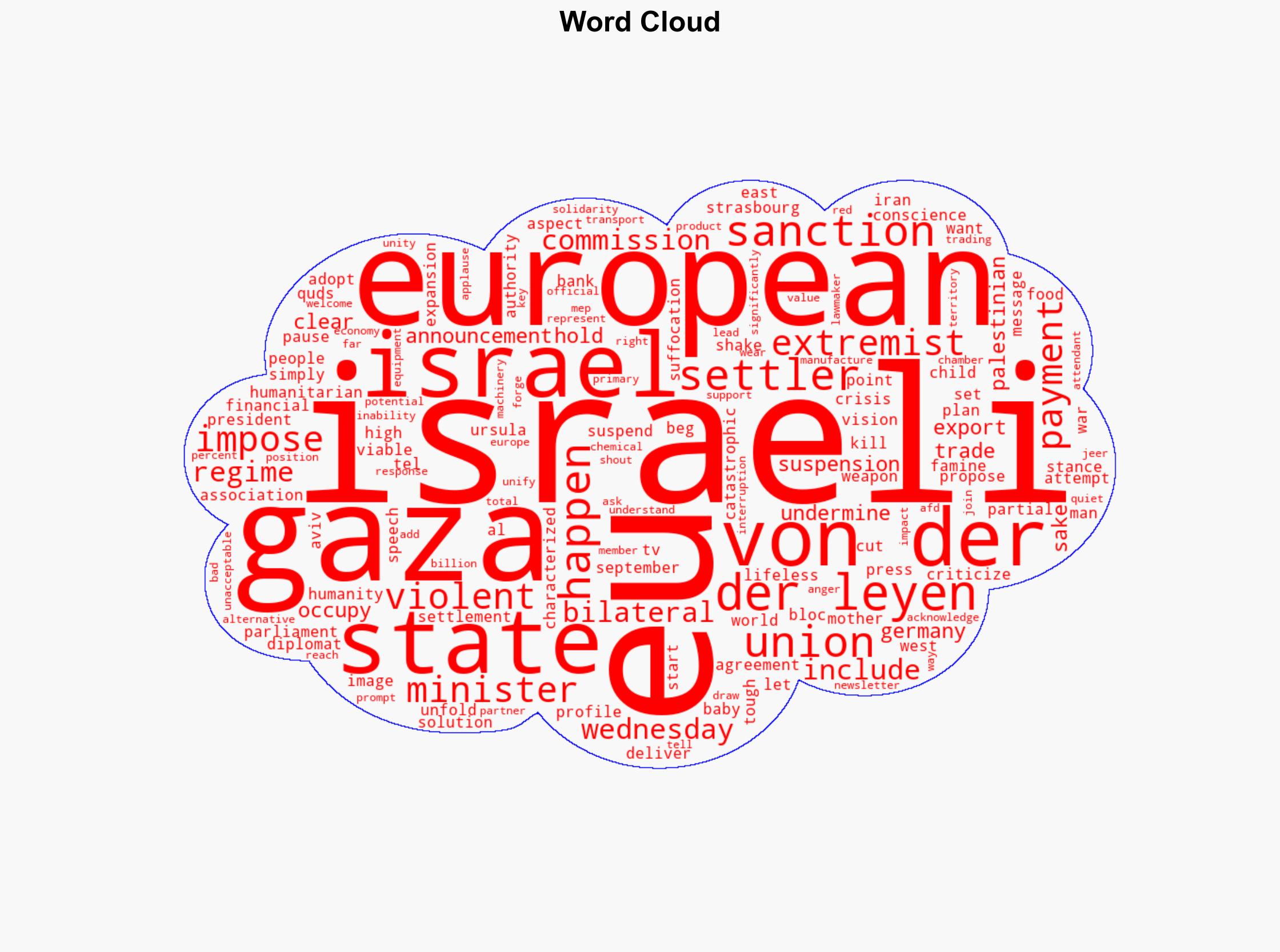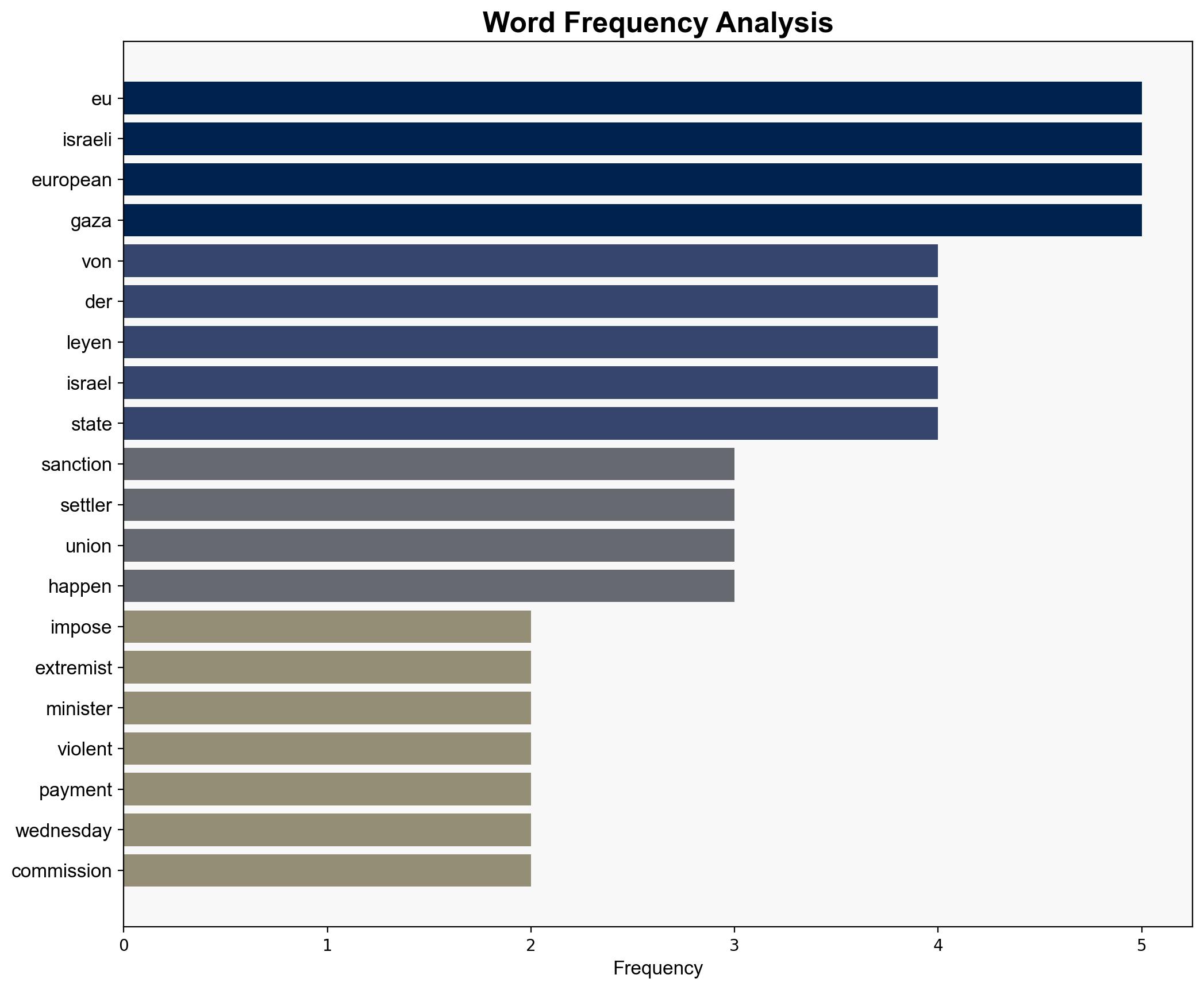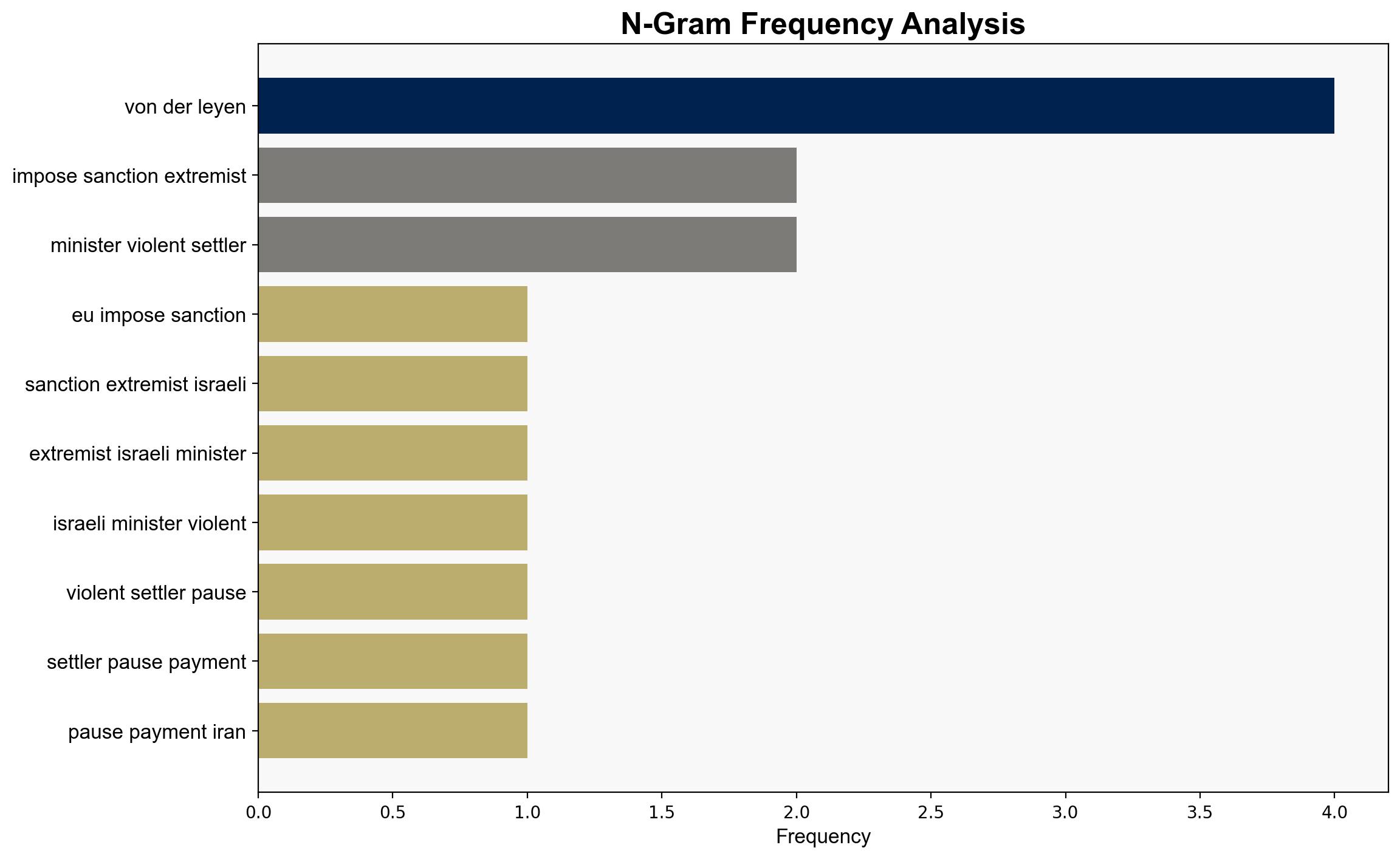EU to impose sanctions on extremist Israeli ministers violent settlers pause payments – Globalsecurity.org
Published on: 2025-09-11
Intelligence Report: EU to impose sanctions on extremist Israeli ministers violent settlers pause payments – Globalsecurity.org
1. BLUF (Bottom Line Up Front)
The European Union’s proposed sanctions against extremist Israeli ministers and violent settlers represent a significant shift in its diplomatic stance towards Israel. The most supported hypothesis is that the EU aims to pressure Israel into policy changes regarding the Palestinian territories. Confidence level: Moderate. Recommended action: Monitor EU-Israel diplomatic interactions and prepare for potential economic impacts on EU-Israel trade relations.
2. Competing Hypotheses
1. **Hypothesis A**: The EU is imposing sanctions primarily to pressure Israel into halting settlement expansions and addressing humanitarian issues in Gaza. This hypothesis is supported by the EU’s emphasis on the humanitarian crisis and the potential suspension of trade agreements.
2. **Hypothesis B**: The EU’s sanctions are a symbolic gesture aimed at appeasing internal political pressures and demonstrating a unified stance on human rights, rather than expecting significant policy changes from Israel. This is supported by the acknowledgment of internal EU disunity and the mixed reactions within the European Parliament.
Using ACH 2.0, Hypothesis A is better supported due to the explicit mention of trade suspension and humanitarian concerns, indicating a strategic intent beyond mere symbolism.
3. Key Assumptions and Red Flags
– **Assumptions**: The EU believes that economic sanctions will effectively influence Israeli policy. There is an assumption that the EU can maintain a unified stance despite internal disagreements.
– **Red Flags**: Potential overestimation of the EU’s influence on Israeli policy. Inconsistent data regarding the actual impact of sanctions on the Israeli economy and political decisions.
– **Blind Spots**: Lack of detailed analysis on how Israel might counteract or mitigate the impact of these sanctions.
4. Implications and Strategic Risks
– **Economic Risks**: Significant impact on EU-Israel trade, particularly in machinery, transport equipment, and chemical products. Potential retaliatory measures by Israel.
– **Geopolitical Risks**: Escalation of tensions in the region, potentially affecting EU relations with other Middle Eastern countries.
– **Psychological Risks**: Increased polarization within the EU and potential backlash from pro-Israel factions.
5. Recommendations and Outlook
- Monitor developments in EU-Israel trade negotiations and prepare for shifts in economic relations.
- Engage in diplomatic dialogues to mitigate potential retaliatory measures by Israel.
- Scenario Projections:
- Best Case: Israel agrees to policy changes, leading to improved humanitarian conditions in Gaza.
- Worst Case: Increased regional tensions and economic fallout from disrupted trade.
- Most Likely: Limited policy changes by Israel, with ongoing diplomatic negotiations.
6. Key Individuals and Entities
– Ursula von der Leyen
– European Commission
– Alternative for Germany (AfD)
7. Thematic Tags
national security threats, economic sanctions, EU-Israel relations, Middle East diplomacy





